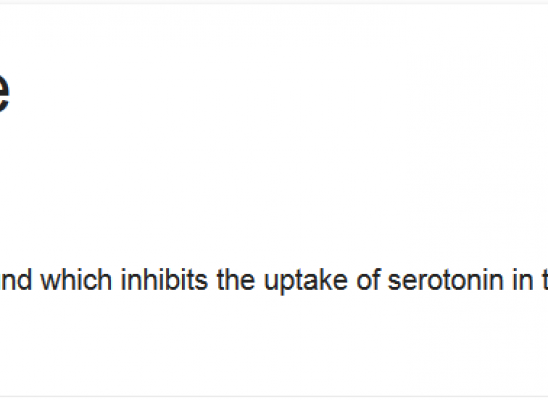When There Are No Words: The Challenge of Talking About Trichotillomania

Online test
Find out the severity of your symptoms with this free online test
Imagine trying to explain what you’re going through when there isn’t even a word for it. For many people living with trichotillomania, commonly referred to as “trich” or hair pulling, the struggle is real.
Our language and culture shape how we understand and talk about mental health. But what happens when what you’re dealing with just doesn’t have a clear name in your language or is veiled in stigma or misinformation in your culture? It can go unrecognized, mischaracterized, or undertreated. And that can have significant consequences for treatment and well-being.
What’s In A Name?
Trichotillomania, one of a group of disorders known as body-focused repetitive behaviors (BFRBs), is estimated to affect about 0.6 – 4% of the world’s population. Trich has been formally documented in the medical literature since the 19th century, but has actually been documented in various forms since ancient times before it even had a name. And it wasn’t always considered to be problematic behavior. In fact, in some ancient cultures, hair pulling was part of funeral rituals and rites of passage. Other cultures viewed hair pulling with “magic” or “madness”. Even today, hair pulling is an accepted part of various cultural or religious rituals in some cultures.
The term “trichotillomania” is derived from the Greek tricho meaning “hair”, tillo meaning “to pull” and mania meaning “madness”. Research has found that how trich presents tends to be similar across cultures and is generally recognized as a problematic behavior.
What does seem to vary is how it is perceived and described. In some cultures, hair pulling is viewed more as a dermatological issue, while others may seek out traditional healers or trusted family members rather than risk being labeled as “mentally ill”. In other cultures, mental disorders like hair pulling may be viewed as a “nervous habit”, “bad behavior” or even a spiritual crisis, and steeped in superstition and stigma. And, in some more isolated areas of the world, there may not be an equivalent term.
How trich is described or viewed varies widely and it can carry a tremendous amount of stigma and misunderstanding. All the ambiguity, stigma and misinterpretation can leave one feeling ashamed or fear being judged, keeping them silent about their suffering, and avoiding seeking psychological care.
Finding the right words to describe what’s happening can be a struggle too. It isn’t uncommon for someone who is pulling their hair out to not know that their hair pulling has a name or to struggle with how to ask for help. They just know that they can’t stop and it’s causing problems. How do you even seek help when you don’t even know what to ask?
Finding the Words
Sometimes, finding the right words is just hard. The good news is, there are ways of talking about trich and your experiences in ways that can overcome social, cultural or language barriers.
Lead With Your Feelings
Why feelings? Because they are a universal human experience. We all have them, and people are more likely to be able to understand your experience from a feelings perspective even if they don’t understand trich at all. For example, you might share, “Sometimes when I feel overwhelmed, I feel an urge to pull out my hair. I feel embarrassed by it.”
It’s A Behavior Not Choice
Let them know that your pulling isn’t simply a bad habit or something you can easily stop if you want to. “I don’t pull my hair on purpose. It’s like my brain gets stuck in a loop and I can’t stop.”
Use Familiar Comparisons
Try using familiar behaviors like nail-biting or smoking. “It’s like biting your nails when you’re nervous. It’s like that only the urge is more intense and harder to stop.”
Use A Visual
They say a picture is worth a thousand words. Even if there’s a communication barrier, sometimes showing someone a picture or a video can help convey information and meaning.
Trich Is A Recognized Disorder
If you find others resistant to the validity of trich, let them know that trich is a recognized disorder and included in diagnostic manuals such as the DSM-5. You can say, “Trich is recognized by doctors and people can get treatment for it, just like anxiety or OCD.”
Sometimes sharing experience is the key to creating a path to talking about trich.
The Takeaway
While awareness of mental health continues to expand, there are going to be gaps in communication and information. Bridging those gaps takes time and as more culturally informed education and accessible care emerge, understanding can continue to grow.
One powerful way to normalize talking about trich is through personal storytelling. When people are willing to speak up, ask for help, or share their experiences, they are sharing ways of talking about trich that others may not have had. Whether it’s talking to friends and family, an online forum, or a support group, sharing your story turns silence into language and language into understanding, healing, and hope.
If you’re struggling with hair pulling, you’re not alone and there is help. You can learn how to manage your hair pulling and you can learn how to navigate those difficult conversations. At Trichstop.com, a team of expert therapists is ready to help you find your voice and find the best treatment for your needs. And online therapy makes getting help easy, secure, and comfortable. When you’re ready, help awaits.
References
1. Grant, J. E., & Chamberlain, S. R. (2021). Trichotillomania and Skin-Picking Disorder: An Update. Focus, 19(4), 405–412. https://psychiatryonline.org/doi/10.1176/appi.focus.20210013
2. Elshamy F, Hamadeh A, Billings J, Alyafei A. Mental illness and help-seeking behaviours among Middle Eastern cultures: A systematic review and meta-synthesis of qualitative data. PLoS One. 2023 Oct 26;18(10):e0293525. https://pmc.ncbi.nlm.nih.gov/articles/PMC10602270/
3. Tiong SP, Rajkumari S, Rasidi NFB, Poplavskaya OV. Transcultural psychiatry: Comparison of eastern and western culture and their influence on mental health and its treatment. Eur Psychiatry. 2021 Aug 13;64(Suppl1):S322. https://pmc.ncbi.nlm.nih.gov/articles/PMC9471598/
4. https://www.reddit.com/r/trichotillomania/comments/17rlj34/omg_it_has_a_name/
Online test
Find out the severity of your symptoms with this free online test
Start your journey with TrichStop
Take control of your life and find freedom from hair pulling through professional therapy and evidence-based behavioral techniques.
Start Now



